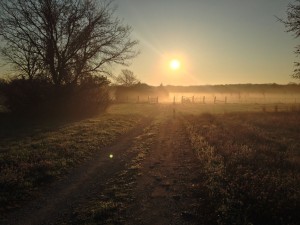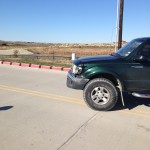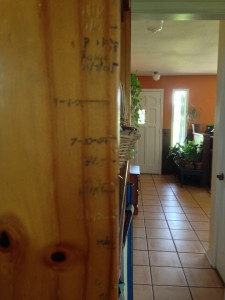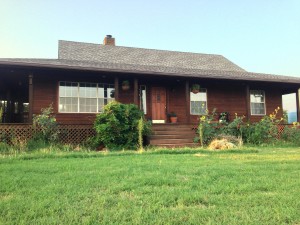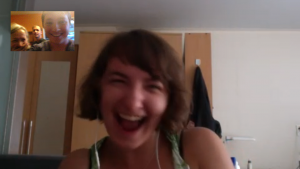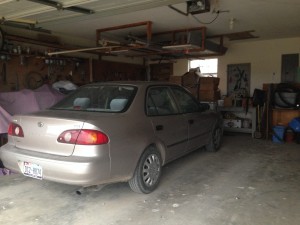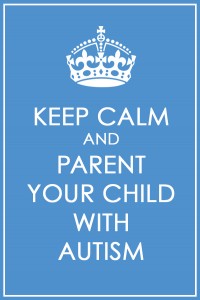decision-making
I Really Want to Like The Kitchen
Trouble started the day we realized my best baking sheet wouldn’t fit into the oven.
An old shop on the Denton Square, Country Kitchen City Cooks, carried the Doughmakers brand. I don’t remember which baking pan I bought first, but it impressed me. I collected a pizza pan, a sheet cake pan, round cake pans, a muffin tin and the extra-large cookie sheet.
Do your cakes come out uneven, or do some of your cookies get too dark while others on the pan barely brown? I used to blame the ingredients, or the mixing or my oven. Then I learned most of the blame belonged to the pans. Doughmakers are to baking what cast iron is to the stove-top.
That big sheet pan was so versatile. I could make the cake for a jelly roll or bakery-sized recipes for pecan bars or brownies when the kids were little and had hollow legs. These days, it’s been Sam’s go-to pan for kolaches. We still make bakery quantities of sausage-filled kolaches.
I tried to tell myself I was going to love the kitchen in the new house. It has a cook top! A double oven! A standing freezer! A wet bar!
The galley design would be more efficient, I told myself. Fewer steps around the workspace. Don’t worry that you don’t have a second pantry. You’re not that hot of a cook, I reminded myself. Don’t worry that the dining room furniture now hides a mountain of seasonal kitchen gear. No one will know that you filled the big hutch with cookie cutters and the little hutch with processing equipment. Use the breakfast table when you need more workspace, I coached myself.
The afternoon Sam couldn’t get a batch of kolaches in the oven because it was too small for the cookie sheet, I had to admit it.
I had my dream kitchen. And I sold it.
Mark and I studied a lot of house plans before choosing the house we built nearly 20 years ago. Dog trot to help keep the house cool, big farm kitchen, wrap-around porch for Sam to pace when he was little, and an interior bathroom.
(People who live in tornado alley understand that last requirement.)
After I sold it, I made sure I could still check some of those boxes at the new house: interior bathroom, apartment for Sam (who paces a little differently now), a covered front porch, big trees on the west side of the house to help stay cool (I have yet to run the air conditioning this year.)
I’ve even figured out how to make up for the loss of a farmhouse garden, but it will take a few years of (enjoyable) work to terrace the back of the property and amend the soil.
But the kitchen. It’s a net loss. Even my son, Michael, notices its shortcomings on his brief visits.
I was in Argyle earlier this week. I didn’t go by the farm. But I couldn’t avoid its reach. I saw enough and felt enough and remembered enough and imagined enough that regret snuck in.
Stupid kitchen.
One of the Denton City Council members often tries to steer deliberations with an axiom he says he got from his father, “Let the reason be the reason.”
I listen even more carefully when he calls for it. It’s an elegant way to describe intellectual honesty, and to push for the more robust discussions that often come afterward. (Although, a person has to be careful. Oftentimes there is more than one reason. And you might need to be skeptical of your skepticism if you are thinking someone isn’t stating their reason.) When the regrets and the second-guessing come, I remind myself that I sold the farm for good reasons.
I need to let the reasons be the reasons.
I remind myself that we used to regret and second-guess our decision to leave California. And New York. And then we remembered what was important to us and we try to gather up those quality-of-life makers in order to keep moving forward. Very few of those things are truly tied to one place.
I don’t know what it will take with this stupid kitchen, but I really need to like it.
Sam and I are still building our new lives here in the central city. Yesterday, he bought a bicycle. It was fun watching him in the bike shop. He hadn’t been on a bicycle in more than 10 years.
He hopped on and pedaled away. Time hadn’t worn away anything at all.
Tale of two clocks
It’s been long enough in the new house that the second bill for internet service arrived in the mail this week. I count it a personal achievement that I have left work brain-drained and exhausted more than once these past four weeks and never pointed the truck the wrong way home.
That’s 20 years of driving habits undone, just like that.
Sam felt comfortable enough with the set-up of his apartment, completely separate yet conveniently located behind the house, to post a triumphant photo on Facebook this week. He had all his boxes and bags unpacked within a week. That included filling a wall of shelves with books and games. But, in true-t0-Sam fashion, he didn’t consider it all done until the wifi, Chromecast and a new clock got installed.
This Monday was the first time he was able to watch one of his favorite shows, Dancing with the Stars, in a long time.
Sunday his clock arrived. He had ordered it a few days before on Amazon. All his mobile devices display the current time, but he still wanted a big, traditional clock on the wall.
Well, almost traditional.
I bought a clock on Sunday, too. We were at the Denton Arts and Jazz Fest. An artist there built clocks in sturdy oak frames and printed out clock faces filled with inside jokes. Sam was still reading clock faces by the time I finished my purchase of a “writer’s clock,” with hours and hours of “write” or “revise” and the end of the “writer’s block” hour coming with the “adult beverage” hour.
I chuckled when I got it home and read the insert on how to power up and set the time on the clock. The artist may have set up shop for the weekend in Denton, but he lives just down the road from my family in Colorado.
Sam’s clock required no effort on his part to set. That was all taken care of by the satellite it signaled.
Of course.
Overheard in the Wolfe House #291
Outward Bound, the indoor edition
“Because you know, nothing bad ever happens to a writer; everything is material.” – Garrison Keillor quoting Philip Roth.
I learned about stage fright at age 10. I had been taking piano lessons for a year. My memories of that first spring recital are a little foggy, except, just before I sat down to play, I saw my dad slip in the door of the recital hall (someone wheeled a spinet piano into the school cafeteria). And I played my song without stopping.
That’s a victory when you are 10 years old.
After the recital was over, I went home with my dad. I tried to eat dinner, but instead I vomited and went to bed.
I loved playing the piano, though, so I kept up with my lessons. I didn’t play again in public for about five years. When it was time, my new piano teacher was clever. (I didn’t tell Mr. Kaehr about my stage fright. But he apparently knew and he knew how to prepare me.) He had me work up Ernesto Lecuona’s Malaguena – so fun and flashy – to play during the honor society banquet. When I was done, the crowd’s reaction told me that they didn’t expect what they’d just heard. That was incredibly affirming, enough for me to perform, and recover from performing, vomit-free, for several years.
When I headed to college, I majored in music. I could get through the performance of a single solo on a departmental recital all right, but putting together an entire solo recital was another matter. I could channel that adrenaline for 10 minutes, but not an hour or more. After one recital I couldn’t even make it through the reception afterward. Went home, vomited and slept all weekend.
I’ve never thought of myself as a risk-taker, especially compared to my late husband. To Mark’s credit, however, he thought through things. In his mind, he wasn’t taking risks. He was fearless in persevering and adapting. I tried not to be afraid of opportunities, or leaning in when problems showed up.
For example, we recognized we couldn’t get help for Sam if we were shrinking violets. We spoke up, we stood fast, we made plain that we expected delivery of the help he needed. Neither of us would take credit for what Sam has accomplished. However, we would have admitted to sweet-talking, cajoling, persuading, wheedling, and outright pushing the people around him when and where necessary. (And, I’m sure, where others in his life might have said wasn’t necessary.) I learned to channel that swirling adrenaline for the length of special education team meetings.
After Mark died, there was no hedging. All bets were off.
Still, I didn’t recognize being in small claims court this week as an indoor edition of Outward Bound until it was over.
A friend, who’s a lawyer, told me that what I’d just done many lawyers in town have not done: argue my case in front of a jury.
When the jury was out, I did confess to the bailiff that the experience was terrifying.
Sad to say, in the Texas justice system, there apparently is nothing in between refusing an insurance company’s first offer to settle your case and finding yourself in front of a jury — unless you just want to up and say ‘never mind.’
My insurance company investigated and determined I wasn’t liable. But the truck is so old, I only carry liability. I was on my own with the other guy’s insurance. And, as Mark would say, “just to make this really interesting,” this company has a poor reputation with many people.
Including me. I’d gone to the mattresses once before with this company.
I refused their first offer, which was totally inadequate. They never budged. When I sued in small claims, I expected mediation or arbitration. I hoped for another offer.
Nope. Nothing. Nada.
Their response to my petition was to ask for a jury trial. I think I was supposed to run from the room at some point, but that just never occurred to me.
I was sticking up for myself and my family.
I lost the argument before I could ever start. The insurance company’s attorney called for a pre-trial conference with the judge to make sure I couldn’t tell the jury much of anything at all.
I felt bad for those people. What a waste of their time. They had no idea.
The whole ordeal lasted two hours. It was a terrific education into the Texas justice system that I won’t soon forget.
And, when I finally got home that day, I didn’t vomit.
Growing while shrinking
I’m glad we decided to etch the kids’ heights in the side of an old bookshelf from Pier I instead of on the pantry wall or some other doorway in the house.
When we built our little house on the Texas prairie nearly 20 years ago, this was supposed to be the last home we’d ever own. We cleared the land and planted 10 acres of pecans. We planted fruit trees and asparagus and berry beds. We started capturing the rainwater and saving it for irrigation on dry August days.
We planned the farm as a backup plan for Sam in adulthood. We were inspired in part by a kibbutz-like farm in Ohio that was a group home for adults with autism. If Sam had nothing else, he’d have the farm. We gave a lot of thought to how we would manage it as we aged, too.
When Mark died, I didn’t see the need to change the plans. The kids were still like fledglings then. Sam didn’t even have his driver’s license. Soon enough, I saw that all the plans Mark and I made only got us to the launching pad. The kids dreams are their own dreams.
In the end, they don’t care if the house they grew up in is the house I stay in. So, I’m not going to.
I’m not quite sure what comes next, but it starts with packing, and donating, and finding better homes for things, and throwing things away.
That wobbly old pine wood bookcase from Pier 1 has really yellowed, but I’m going to keep it. It’ll have a place of honor in my next kitchen, holding all the cookbooks, wherever that may be.
Overheard in the Wolfe House #275
See Sam Drive: Lost in mid-cities
If I ever doubted that no good deed goes unpunished, the lesson was reinforced today.
Michael had a job interview and asked to borrow the truck, since the air conditioning is out in his car.
(This is February, you say. This is Texas, I tell you.)
So out of his routine was he, that when he returned to the truck after the interview, he realized he locked the key inside. He called to ask whether there was a hide-a-key.
(No, son, a hide-a-key is something parents make their kids do with their own car.)
He didn’t want to pay for a locksmith if Sam could come with a spare. There was time. Sam loaded directions in the GPS on his phone and headed out.
Sam is not a fan of I-35. E or W. He took State Highway 114 and headed south on Precinct Line Road to where Michael was, in North Richland Hills. That was probably a mistake. Maybe U.S. Highway 377 would have been better. He got lost somewhere in Keller — so lost that he pulled over and called police to get help. They came and gave him directions.
Sam made it to the parking lot where Michael was waiting and the two of them were supposed to follow each other to I-820, where they would part ways at I-35W.
I thought all was well and then Michael called me again.
“I lost him,” he said.
Every parent of a child with autism knows this terror. And now his brother was learning it, too. Michael recounted as much of the situation as he could, starting with the moment he realized Sam was heading down State Highway 183 the wrong way, and I was at a loss of what to suggest next.
Sam had turned his phone off to save battery life. That worried us both. Not only was he not communicating with us, we knew “Siri” wasn’t giving him directions home.
“Call the police. Make a report,” I told him. “We can’t do this. We need the village.”
A co-worker (one of several that talked me off the ledge today) offered to take me home and Shahla provided a bit of support via text. Meanwhile, Michael was making a report with the police. I so hoped that Sam would be parked in the driveway when I got home, but he wasn’t.
I put an alert on Facebook and started to regroup. I would take Michael’s car and meet him and the police in North Richland Hills where they were making a missing persons report. (Because Sam has autism, it would have gone out immediately.)
And then Sam came down the driveway. I called Michael. The police shredded the missing persons report Michael had just signed.
It took awhile for the emotions to settle and the conversation to begin. Sam knew he had separated from Michael and had been going the wrong way down the highway. But he remembered the directions Michael gave and when he was sure things weren’t looking right, he turned around and went the other way. He stopped at a medical center to get directions, too, and then he headed home.
(So, Tim Ruggiero, not only pizza places, but also medical centers are good places to get directions, we learned today.)
We gave ourselves a list of things to do, like Michael joining AAA, and Sam putting GPS in his car with a “home” button, and me putting a hide-a-key on the truck, so that all our good deeds trying to help each other out don’t get so punishing.
And, a big shout-out to all of the mid-cities’ finest. You got to know autism today and you did well.
One book every ten years
I’ve been told more than once that the purpose of your first book is to help get your contract for the second one. (Also, I’m told to not quit your day job until after the third book is published, but I keep doing the math and I think that advice is for fiction writers.)
I’ve noticed that some writers are better than I am about coming up with topics for books. A children’s writer down the road from me, Lynn Sheffield Simmons, gets her inspiration from animals and her little books are now in accelerated reader programs in elementary schools. My good friend, Donna Fielder, follows the headlines with her terrific true crime books. She also works with really funny material from her column writing — it seems like she always has a project in some stage of development.
It has been almost a decade since I developed my last manuscript and managed to have “See Sam Run” published. The next one is coming along, thanks to an extraordinary collaborator, Shahla Ala’i-Rosales.
Shahla has worked with parents and children with autism for years, has helped educate a generation of certified behavior analysts, and produces informed research on the topic. It has taken us several years to put together what we hope will be a timeless guide for parents, young and old, who love and care for a child (or adult) with autism.
It’s basically this idea:
This is no easy task, y’all.
But Shahla and I have come to recognize that behavior analysis and mindfulness intersect in a way that can be powerful and life-altering for parents, their personal and professional allies, and the children in their care.
Here’s a sneak peek from our proposal:
Our book starts in territory that others have explored – the emotional landscape above which all the hard work of raising a child takes place – and moves into the extraordinary territory parents of children with disabilities must work in. As no one has written about mindful parenting and parenting children with disabilities for general audience, our book will break new ground.
Parents make decisions for their children every day. Parents of children with disabilities often make more decisions, and sometimes continue to do so for the duration of their child’s entire life. Many of those parents also recognize that their children may lack the resilience to bounce back as quickly, if at all, if a decision turns out to be a mistake. Those decisions can often feel high-stakes to parents.
Through its conversational tone, accessible to busy and overwhelmed parents, this book will both offer parents stories that are insightful and steer them towards tenets unified by time-tested, wisdom-based principles. The work is also grounded in the ethical guidelines used by professionals. In this way, the book echoes not only emerging market in mindfulness and parenting but also emerging research on mindfulness …
Overheard in the Wolfe House #244
Peggy (sneezing): Achoo! Achoo!
Sam: Bless you. Bless you. (pauses) There. I’m covered.
Overheard in the Wolfe House #230
Sam (after changing a rear brake light bulb and picking up a dead AA battery he found in the trunk of his car): So, can the dead grasshopper stay?
Peggy (having just picked up a petrified strawberry from said trunk): Yeah.
